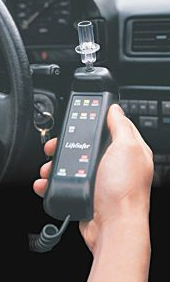
After years of working as a first officer for a commercial airline, Andrea is finally about to become a captain. To celebrate, she goes to dinner with friends and has a couple drinks. On the way home, she forgets to signal a right turn, and an officer stops her. The officer smells alcohol and has Andrea perform field sobriety tests. The officer says he notices ‘clues’ on the tests and arrests Andrea for DUI (called OVI in Ohio). As the cuffs go on, all she can think about is what will happen to her pilot’s license and her career.
 Columbus OVI/DUI Attorney Blog
Columbus OVI/DUI Attorney Blog






 Fourth amendment law does not lend itself to mathematical formulas. Rather than using equations to decide Constitutional issues, courts look at the totality of the circumstances and make decisions on a case-by-case basis. This is particularly true when it comes to the issue of whether an officer had probable cause to justify an arrest. However, one theorem illustrated by a recent Ohio OVI case is this: clues on Field Sobriety Tests (FSTs) does not equal Probable Cause (PC).
Fourth amendment law does not lend itself to mathematical formulas. Rather than using equations to decide Constitutional issues, courts look at the totality of the circumstances and make decisions on a case-by-case basis. This is particularly true when it comes to the issue of whether an officer had probable cause to justify an arrest. However, one theorem illustrated by a recent Ohio OVI case is this: clues on Field Sobriety Tests (FSTs) does not equal Probable Cause (PC).


